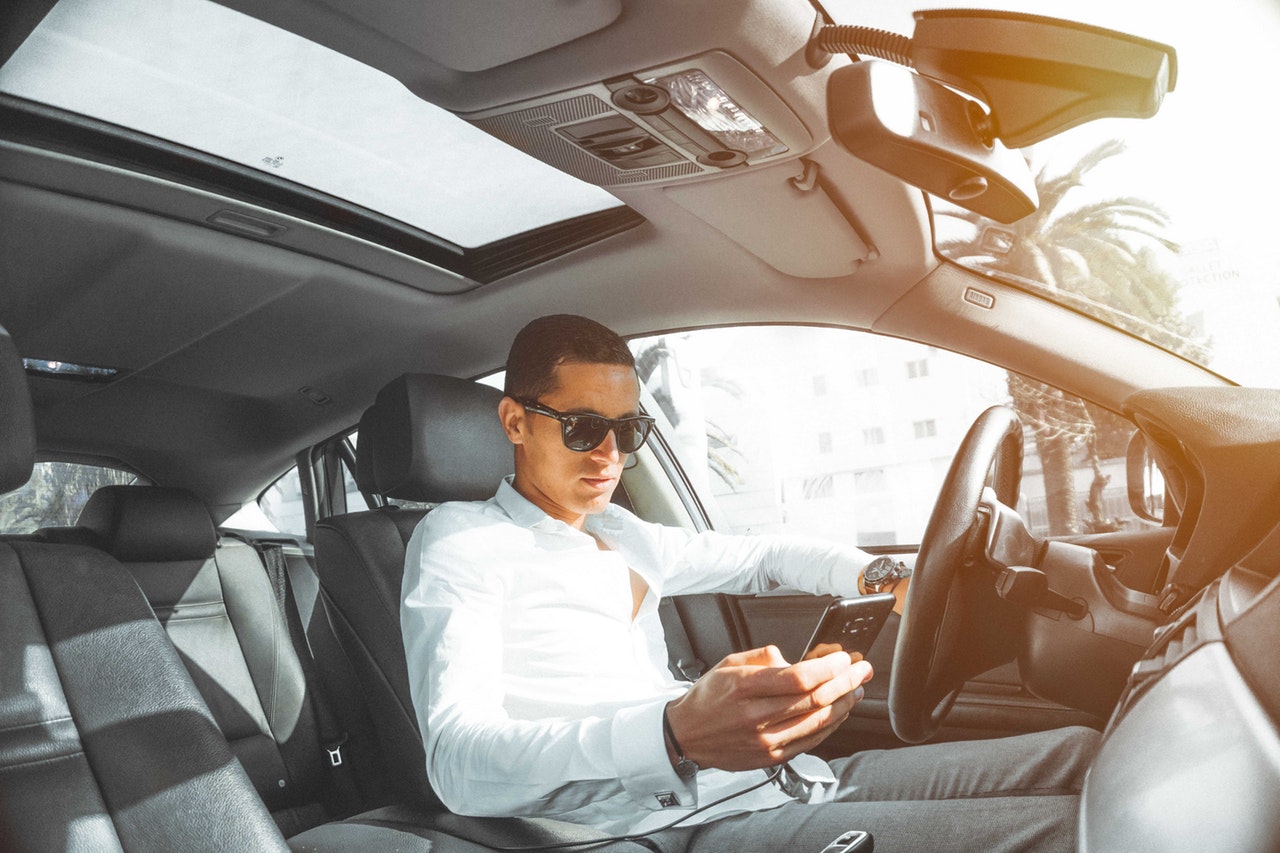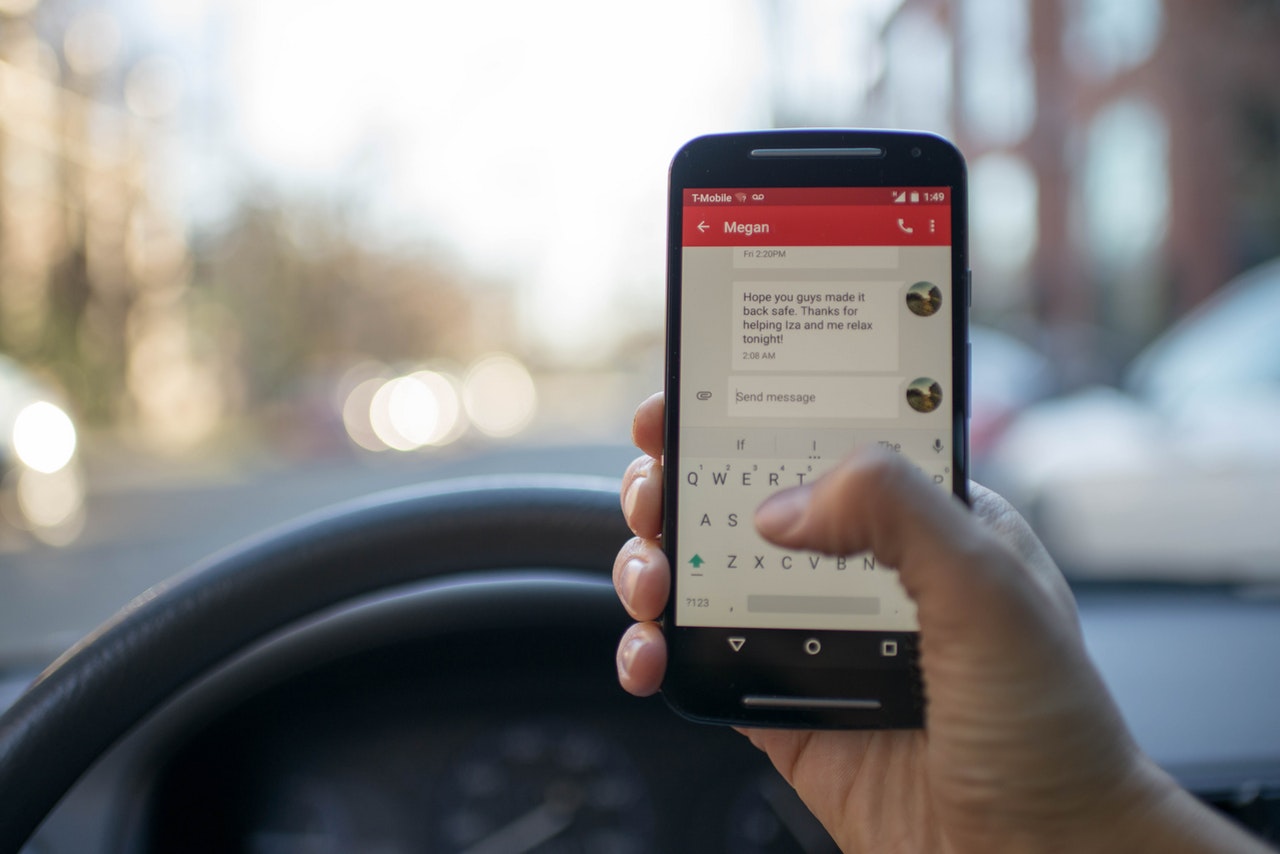Most people can’t live without their cell phones. They’re the easiest way to stay connected, find out information, and get directions, and they’re used all the time in our day-to-day lives.
Unfortunately, phones and cars just don’t mix well. Over a quarter of all vehicle crashes in the U.S. are due to phone use while driving,1 and this figure only gets higher every year. With a large majority of states banning at least some form of phone use in the car or on a motorbike, choosing to text on the road doesn’t just lead to potential harm to yourself and others, but also big fines.
Is it ever okay to use your phone while driving? What are the laws? Will you be held liable if something does happen? Keep reading as we find out the answers to this modern-day problem.
The Laws Nationwide
Road rules involving cell phone usage are enacted on a state-by-state basis. As such, almost every state has a slightly different rule. Some states ban all cellphone use, some allow hands-free use, some allow all use except for texting, and some have different laws for holders of learner, intermediate, and full licenses.
In many cases, these state-wide laws are preempted—that is, overridden or added to—by local or county laws. As well as this, most laws also apply to those who are waiting at traffic lights or have stopped the car but not parked it.
The Laws in Texas
The central law concerning phone use while driving in Texas was enacted in 2017. It puts a ban only on texting while driving, for all electronic devices and all ways of texting electronically. This means, under Texan law, that use of the cellphone for other purposes, such as calling or using the GPS, is still allowed.
However, some 45 cities within Texas have preemption laws stating that all cell phone use while driving is prohibited, except for when it’s a hands-free call. Even then, you must only use the phone to connect and disconnect the call. The cities that have this law include:
- Austin
- Corpus Christi
- El Paso
- Laredo
- San Antonio
- And many more
A Fatal Distraction
There’s a reason these laws are in place, and it’s simple: Distracted driving is dangerous. In 2015, 3,477 people were killed on the nation’s roads due to distracted driving and just under 400,000 were injured.2 Phone usage is a big part of that: If you look away for only five seconds while driving 55 miles per hour, you’ve just crossed the length of a football field without paying attention.
Inattention Blindness
Distraction is the key factor. Even if you’ve got your eyes on the road, being distracted is just the same as being blind. You’re not paying attention, so your brain simply doesn’t register other traffic and potential hazards until it’s often too late.
Common Misconceptions
Many people assume that if you don’t look away as frequently—just a couple of words each time when you’re texting—then it’ll be safer. Since you can take a second to change the radio station, then surely you can take a second to look at a text?
Unfortunately, it doesn’t work that way. Texting is not the same as looking at your dashboard because it demands so much more of your time. You’re comprehending the words, finding letters on the keyboard, and thinking about what you’re going to say next. It’s not just the second you look away, it’s all the other seconds that surround it while you’re focused on your phone.
Is Hands-Free a Safer Alternative?
Since almost all states allow hands-free calling, it seems that it’s much safer to do that than the alternatives. However, studies are divided over whether hands-free is any safer since it still distracts you. If you’re worried about safety, the best thing to do is to just avoid phone use entirely.
Liability
If you’re in an accident and injured as a result of someone’s actions (or inaction), then that person may be held liable under civil law and forced to pay damages. This is true for phone use while driving, too, and will carry extra weight if that texting or phone use was done illegally.
Even if their phone use wasn’t illegal, an auto injury attorney can still successfully argue that they acted negligently. In fact, since messages and calls are logged with the service provider, phone distractions are even easier to prove than other types of distractions, which may require a witness.
Can Anyone Else Be Sued?
Recent car accident lawsuits have tested whether liability can be extended to other parties, including the manufacturer of the phone or the person sending the text messages to the driver. It’s still unclear whether the ruling of liability for these third parties will be upheld, but it’s important to remember that it’s always a possibility.
Punitive Damages
In some cases, punitive damages may also be awarded to those injured by distracted drivers. Normally, punitive damages are intended not so much as compensation but as punishment to the defendant for malice, oppression, or fraud in their actions.
Proving that a driver had malice in using their phone—i.e., displayed a conscious disregard for the safety of others—is difficult, but not impossible. If the court wants to make an example of the defendant, then they could be ordered to pay a large amount in damages.
Is Phone Use While Driving Justifiable?
Given the accident rate, the potential for fatalities, and the significant possibility of being successfully sued, using your phone while driving is a big risk. Even in states like Texas which only ban texting, anyone engaging in distracted driving has a significant chance of being held liable.
There are a small number of scenarios in which cell phone usage on the road might be justifiable—in an emergency, for instance, or as a first responder. However, in almost all other cases where it’s possible to park your car before using the phone, there’s simply no defensible reason.
Distracted Driver Accident? Our Auto Injury Attorneys Can Help
Our laws often struggle to keep pace with the latest technology, which means the legal landscape is always changing. What might be legal to do while driving today might not be tomorrow. It’s important to keep up to date. We rely so much on our phones, and you need to know how laws could affect you and others on the road.
If you’ve been in a crash and want the best car accident attorney, turn to Schechter, McElwee, Shaffer & Harris, L.L.P. We’ve got over a hundred years of combined experience on our team, and we can steer you through the tricky roads of negligence and liability.
Our firm has recovered millions of dollars of compensation for people just like you. Don’t settle for less. Call our expert vehicle collision lawyers at (713) 574-5089 now for a free evaluation of your case.
Sources:

 Over 300 Google 5 Star Reviews
Over 300 Google 5 Star Reviews









Leave a Reply